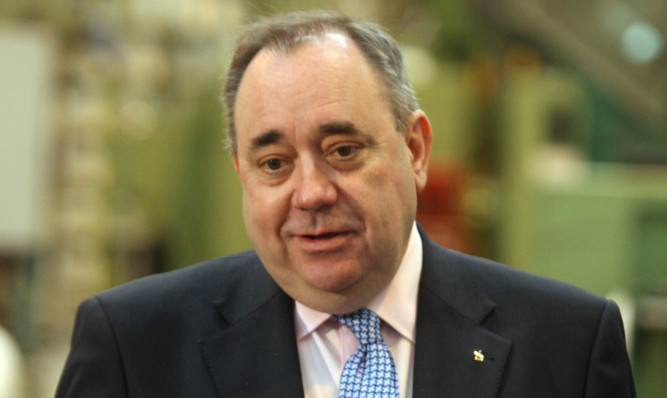First Minister Alex Salmond will today attack UK Government “fibs” about the potential value of North Sea oil to an independent Scotland.
A new Scottish Government paper on oil and gas will challenge predictions by the UK Government’s Office for Budgetary Responsibility (OBR) that there will be a downturn in production.
Mr Salmond will argue this is the latest in a long line of allegedly pessimistic forecasts from Westminster, citing the example of the 1975 McCrone Report which advised that an independent Scotland could thrive with North Sea oil but remained confidential for decades.
Former chancellor Denis Healey also recently claimed his government “did underplay the value of the oil to the country because of the threat of nationalism”.
Speaking ahead of today’s launch, Mr Salmond said: “Westminster government departments fib, as Denis Healey recently revealed. Now they are at it again. It’s another part of Project Fear from the No campaign, which is being exposed on a daily basis.”
He added: “Over half the value of oil and gas in the North Sea remains to be extracted. The idea that the industry is planning to invest £100 billion in projects, and that nothing will happen to productivity, is ridiculous.”
Today’s launch comes ahead of the publication of a new book by the McCrone Report’s author, former Scottish Office and Scottish Government economic adviser Gavin McCrone, which accuses the Conservatives of a “serious mishandling” of North Sea oil revenues in the past.
However, he also warns that the volatility of oil prices could force an independent Scotland to raise taxes or cut public services to manage the fluctuations.
“My own view is that (oil prices) are more likely to go up than down over the longer term but the only thing one can be sure about is that they will be volatile,” he writes in his forthcoming book Scottish Independence: Weighing Up the Economy.
The Tories’ decision to use oil to prop up the economy rather than establishing an oil fund “had catastrophic consequences for much of the manufacturing industry”, he said.
“That this fund was not set up is a tragedy. It amounts to a serious mishandling of the greatest economic opportunity the UK has had in the last two decades of the 20th Century.”
However, he said a Scottish oil fund would require “draconian” cuts to eliminate the budget deficit in the short term.
“There would have to be big tax increases or public expenditure cuts on top of what the coalition have already imposed,” he said. “The Scottish economy would be pushed into an even worse recession and unemployment would rise even further.
“I don’t think that is practical so I agree with the Scottish Government’s policy of putting oil revenues into a special fund as soon as fiscal conditions allow.
“But as the economy’s growth looks likely to be feeble for some years, it could be a considerable time.”
